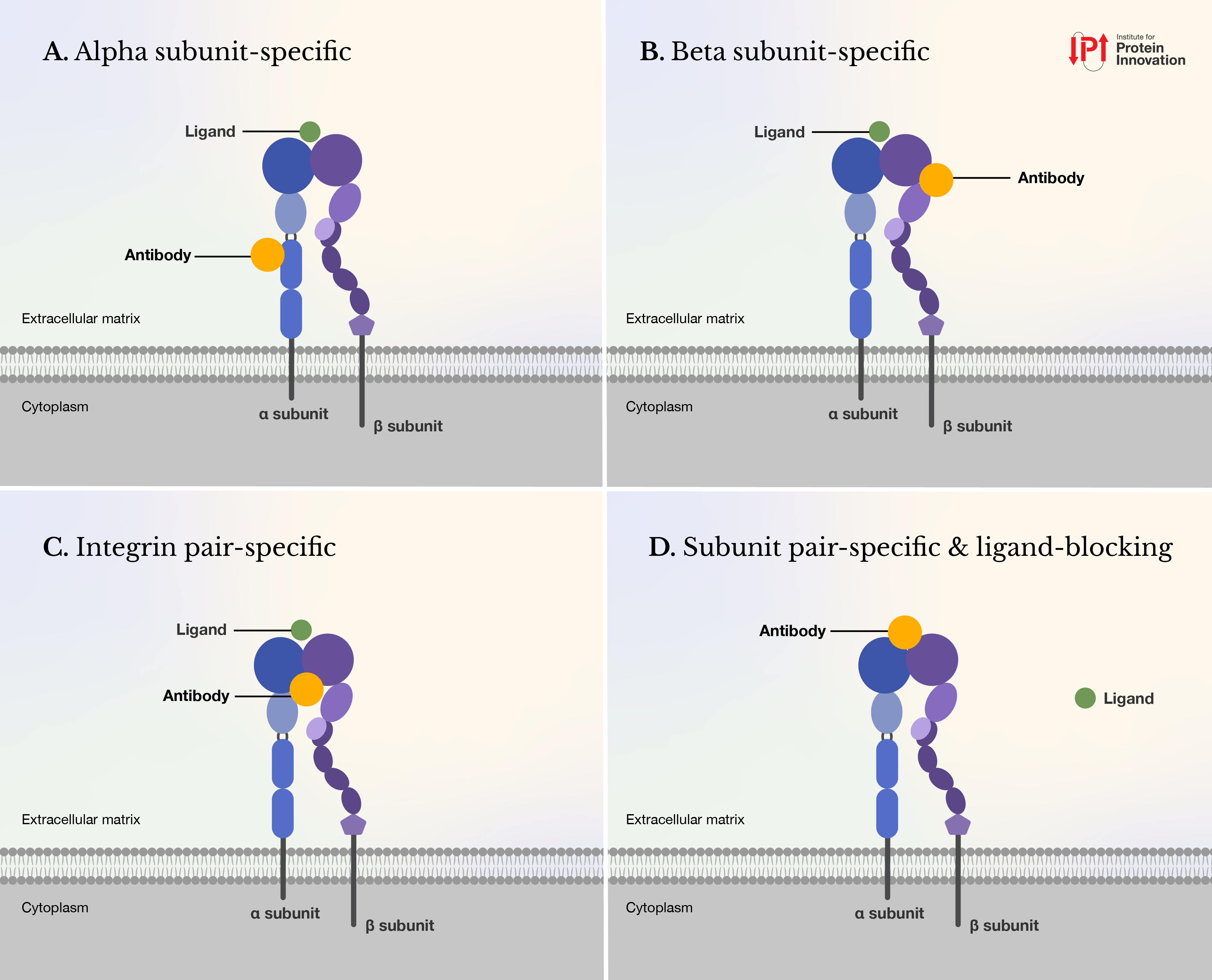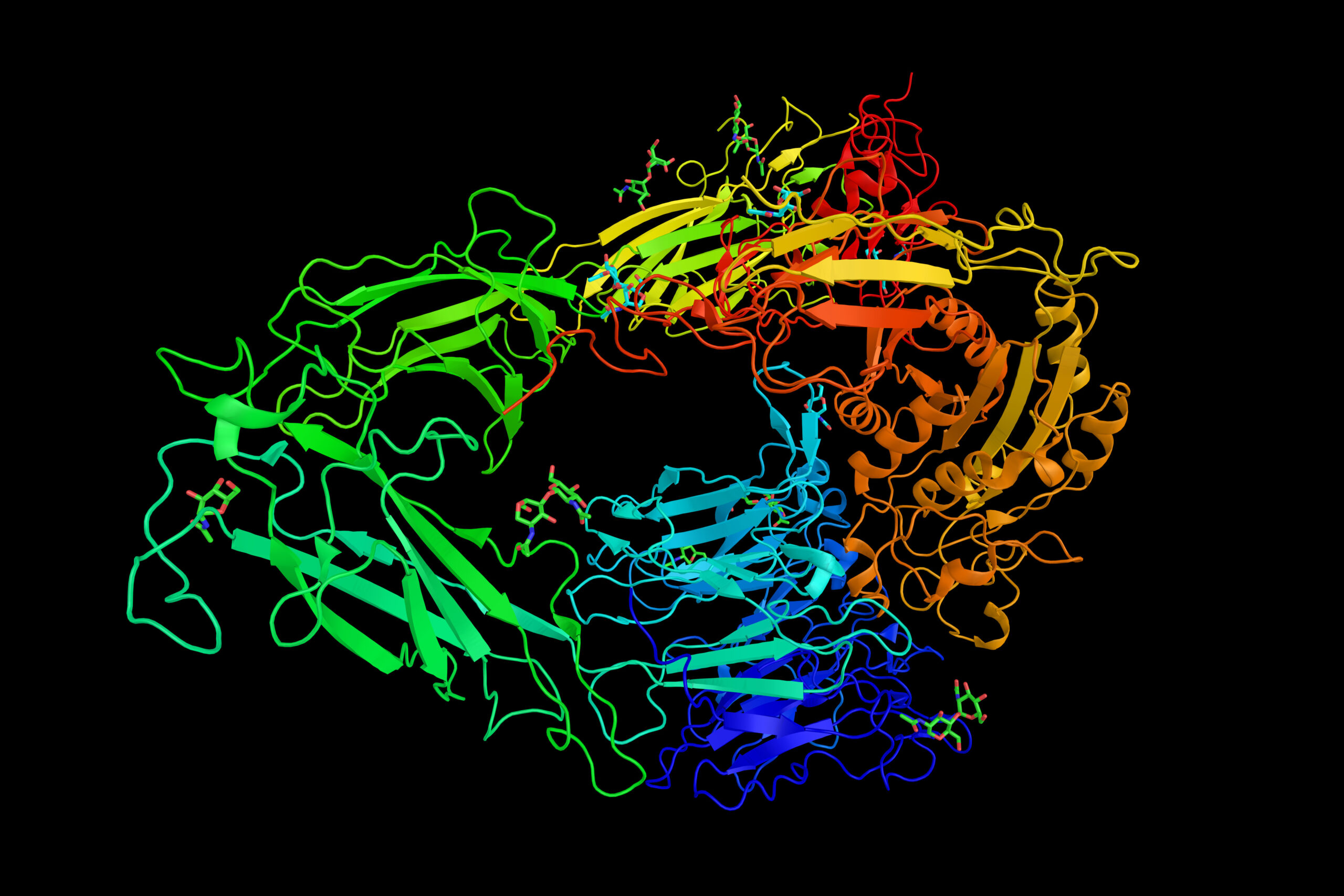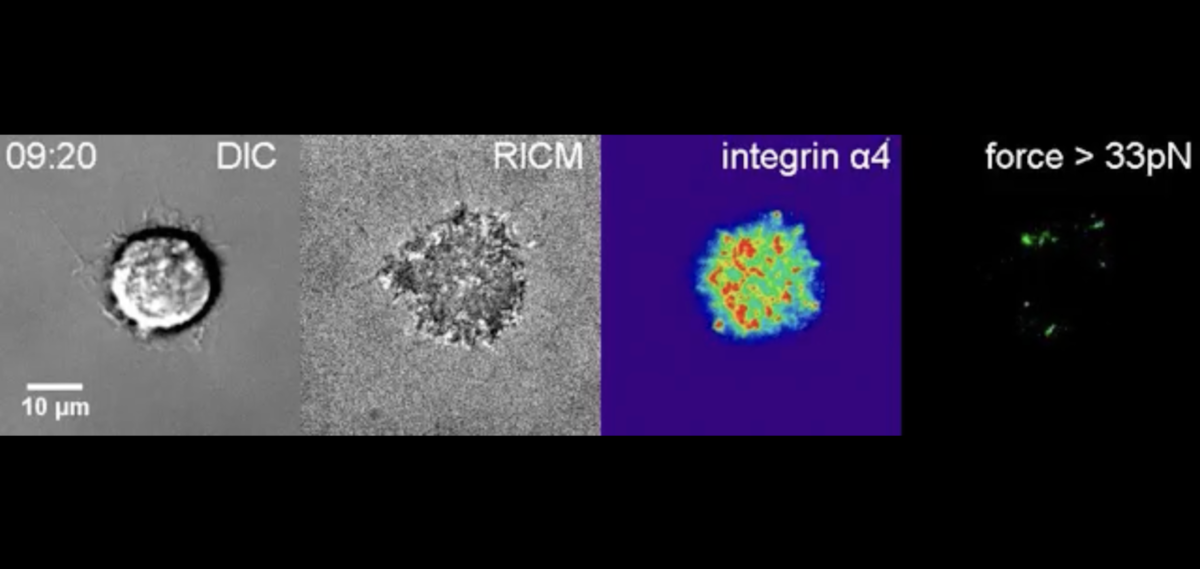Our integrin collection includes antibodies that bind discrete subunits or particular subunit pairs. The antibodies block ligand binding, interrupt integrin function and/or identify integrin presence. Scientists can use IPI antibodies to study signaling, test mechanisms or ascertain distinct receptor functions — all key to drug development.
The anti-integrin toolset comprises 11 synthetic recombinant antibodies developed at IPI using yeast display technology and 15 hybridoma-derived antibodies developed in the Springer lab and produced at IPI.
All IPI antibodies go through extensive characterization, including:
- Molar mass verification via mass spectrometry
- Purity and structural integrity analysis via size exclusion chromatography
- Affinity and kinetics measurements via surface plasmon resonance
- Non-specific binding assessment via polyspecificity reagent assay testing
- Activity analysis via flow cytometry
IPI’s anti-integrin antibodies are unconjugated and recommended for use in flow cytometry. IPI is also expanding antibody characterization to other applications, including western blot, immunohistochemistry, ELISA, immunoprecipitation, and immunofluorescence.
At IPI, we believe that finding the right reagent shouldn’t be so difficult. Thus, IPI offers its antibody purchasers access to data including antibody sequences, affinity results and kinetic behavior.

ID | Product name | Description | Source species | Isotype | Reactivity | Applications All IPI integrin antibodies were validated in Flow cytometry. | |
|---|---|---|---|---|---|---|---|
213673 | Anti-Integrin alpha L [IPI-M17/4] | Anti-Integrin αL (Mouse) recombinant rat monoclonal antibody; binds αL subunit | Rat | IgG2a | Mouse | Flow cytometry | |
213675 | Anti-Integrin alpha M [IPI-M1/70] | Anti-Integrin αM (Mouse) recombinant rat monoclonal antibody; binds αM subunit | Rat | IgG2a | Mouse | Flow cytometry | |
213676 | Anti-Integrin alpha M [IPI-CBRM1/5] | Anti-Integrin αM (Human) recombinant mouse monoclonal antibody; binds I domain… more+ Anti-Integrin αM (Human) recombinant mouse monoclonal antibody; binds I domain of αM subunit less- | Mouse | IgG2a | Human | Flow cytometry | |
213677 | Anti-Integrin alpha M [IPI-CBRM1/29] | Anti-Integrin αM (Human) recombinant mouse monoclonal antibody; binds αM subunit;… more+ Anti-Integrin αM (Human) recombinant mouse monoclonal antibody; binds αM subunit; blocks ligand binding/function less- | Mouse | IgG2a | Human | Flow cytometry | |
213678 | Anti-Integrin alpha M [IPI-LM2/1] | Anti-Integrin αM (Human) recombinant mouse monoclonal antibody; binds αM subunit | Mouse | IgG2a | Human | Flow cytometry | |
213681 | Anti-Integrin alpha 5 [IPI-MFR5] | Anti-Integrin α5 (Mouse) recombinant rat monoclonal antibody; binds α5 subunit | Rat | IgG2a | Mouse | Flow cytometry |
References using our integrin antibodies.
Hao Y, Yan J, Fraser C, Jiang A, Anuganti M, Zhang R, Lloyd K, Jardine J, Coppola J, Meijers R, Li J, Springer TA. Synthetic integrin antibodies discovered by yeast display reveal αV subunit pairing preferences with β subunits. bioRxiv. 2024 Jan 26:577394. Doi: 10.1101/2024.01.26.577394.
Jo MH, Li J, Jaumouillé V, Hao Y, Coppola J, Yan J, Waterman CM, Springer TA, Ha T. Single-molecule characterization of subtype-specific β1 integrin mechanics. Nat Commun. 2022 Dec 3;13(1):7471. doi: 10.1038/s41467-022-35173-w. PMID: 36463259; PMCID: PMC9719539.
Need information or assistance with one of our antibodies?
Go to the Addgene Help Center or contact Addgene below.




